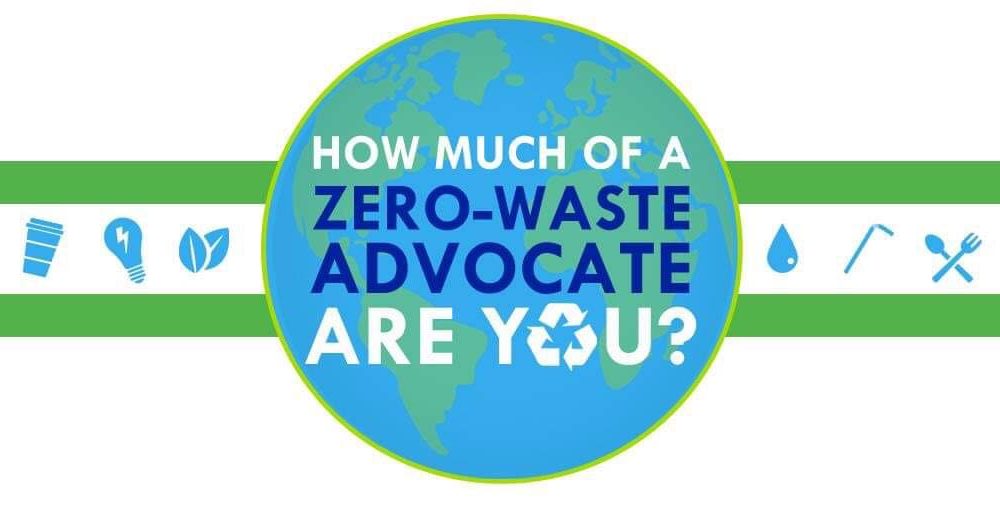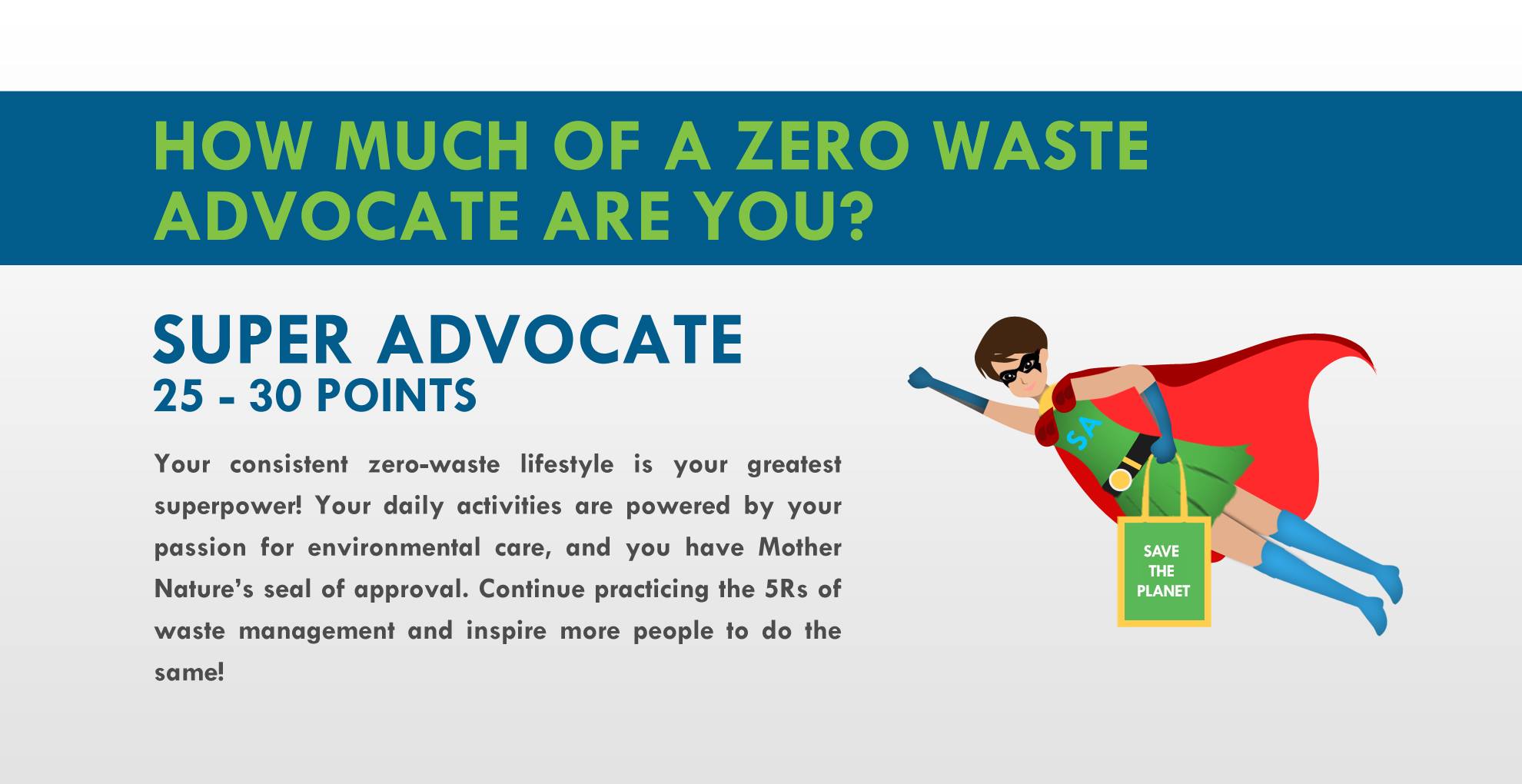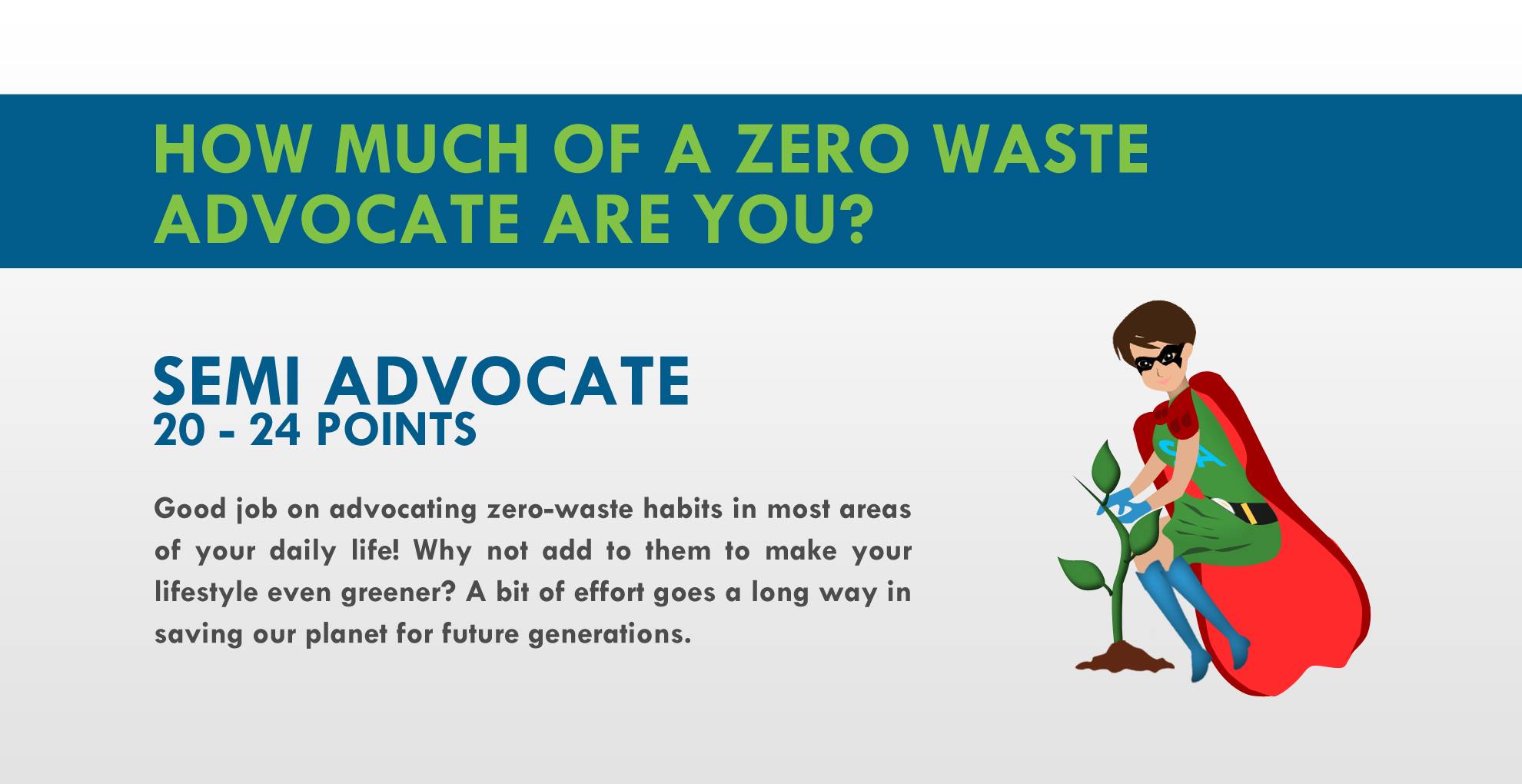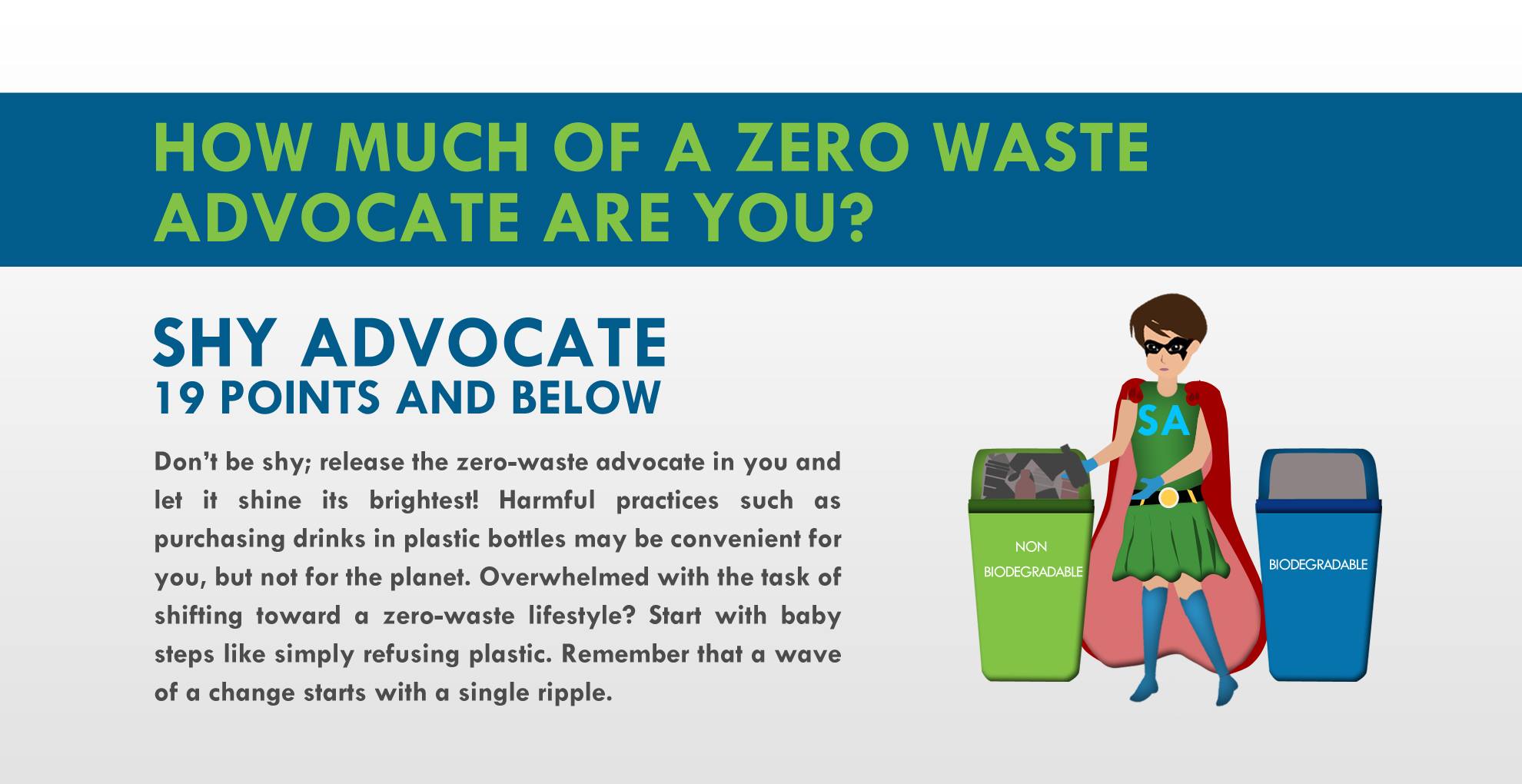Home > Blog > Zero waste
How Much of a Zero-Waste Advocate Are You?

January is Zero-Waste Month, as declared through a presidential degree in 2014. While this initiative aims to cultivate environmental awareness and care among Filipinos, zero-waste practices particularly focus on waste prevention. Simply put, its goal is to eliminate the trash sent to landfills and incinerators.
 Plastic waste dump in Dumaguete/ photo by Greenpeace
Plastic waste dump in Dumaguete/ photo by Greenpeace
Why we need to limit our trash
A few times a week, the city’s garbage truck comes to our neighborhood to collect our household trash. Even though we have dutifully segregated your biodegradables and non-biodegradables, the harsh reality is that most of our garbage are dumped into our already teeming landfills. And what our landfills cannot hold eventually end up in our oceans.
Though recycling centers are tasked to manage environmentally-toxic plastic, which takes 400 years to break down, National Geographic states that a new study has discovered that only 9% of global plastics have been recycled.
Zero-waste principles aim to address this waste management crisis at the source—by redesigning business process and individual lifestyles to limit the trash produced. Here are its 5Rs shared in our past feature on Angelica Mata, known in the blogosphere as Low-Impact Filipina.

- REFUSE unnecessary waste such as single-use plastic.
REDUCE your consumption of waste-producing commodities such as clothes and personal hygiene products. - REUSE or repurpose old belongings instead of throwing them away.
- RECYCLE or bring reusable materials to recycling centers. Mata emphasizes that this should be the last resort since centers can only recycle a limited range of materials.
- ROT or compost discarded food so these can be used as fertilizer.
Have you integrated these practices in your lifestyle? To celebrate Zero-Waste Month, take our quiz to find out how much of an environmental advocate you are.
1. It’s a hot day outside. You swipe the sweat off our face and realize that you need a drink of water to cool you down. What do you do?
a) You open your bag and take out your thermos, which you always bring whenever you are out.
b) You hunt for a café that offers paper cups, which you believe are eco-friendly. You fill it up with water, drink, and shoot the paper cup in the recycling bin.
c) You buy a plastic bottle of water (they are available everywhere!), finish your drink and throw the bottle in the bin.
2. When the server gives you the plastic fork and spoon that come with your meal, you:
a) Refuse them and fish out your reusable cutlery from your bag.
b) Refuse them and bring out the plastic spoon and fork from your last takeout. You have a collection of these in your home, which you use a pair at a time.
c) Accept the plastic cutlery without question.
3. The weekend rolls around, and it’s time to do some housekeeping. First on the agenda is to remove the accumulated dust. What do you use?
a) a homemade rag you’ve sewn from your old clothes, towels, and linens
b) a rag from the stash you regularly buy
c) Wet wipes. You just pull them out from their plastic pouch and throw them after use. So convenient!
4. Your big job interview is just a few days away, but you can’t seem to find anything appropriate to wear from your wardrobe. What do you do?
a) Swap clothes with a friend. This way, you both benefit from each other’s old clothes!
b) buy from an ukay-ukay
c) Log on to your favorite online store and click add to cart.
5. Let’s face it. Drinks like milkshakes and milk tea cannot be simply gulped down; they have to be sipped for maximum enjoyment. What do you do when you order from your favorite milk tea store?
a) Let the server know that you don’t need a straw. You always bring your own reusable straw.
b) Ask for a paper straw.
c) Accept the plastic straw given to you.
6. It’s time to give the bathroom a good scrub! What do you use to clean it?
a) My homemade all-purpose cleaner made from white vinegar and table salt! I just dampen a rag with vinegar and sprinkle salt on it. Vinegar naturally disinfects, while the salt scrubs away stains.
b) All-natural cleaners I bought from an eco-friendly store.
c) I use whatever I buy from the supermarket.
7. You’re at the palengke, buying fruits and vegetables. What bag do you use for shopping?
a) a canvas bag that you’ve been reusing for the longest time
b) A new eco bag you purchased at the grocery. You have dozens of them at home!
c) You just use the thin plastic bags that come with you purchases.
8. You open your fridge and this is what it looks like:
a) Leftovers and easily spoiled food are at the front, reminding you to eat them right away. You make sure you don’t waste anything. In fact, you keep a list of your fridge’s contents tacked on its door, and you plan your meals around them.
b) Leftovers are neatly stored in containers, but sometimes, you forget to check them, and end up throwing out some.
c) You only get to check the inside of your fridge after you weekly grocery run. You throw out old food to make room for the new ones you bought.
9. After whipping up an amazing meal, you end up with a pile of vegetable and fruit peel. What do you do with them?
a) Gather them and put them in the compost pit in your backyard.
b) Segregate them and wait for the garbage truck to pick them up.
c) Throw them in the bin with the rest of your household garbage.
10) You take a good look at your food supply. What does it mostly consist of?
a) Fruits and vegetables. You avoid buying food in packaging.
b) Huge packages of food. You buy in bulk to minimize packaging waste.
c) An assortment of sachets, small cartons and pouches of food.
Congratulations on finishing the quiz! Before we move on, here are 10 quick notes on the questions you answered.
Did you know?
- Most papers cups are not actually biodegradable. To keep them from getting soaked by their liquid contents, paper cups are lined with a type of plastic called polyethylene.
- Plastic utensils easily break and are meant to be disposable, so it’s best to refuse them from the start.
- Most wet wipes contain plastic and are therefore not biodegradable.
- 10% of carbon emissions come from the fashion industry.
- Though paper straws are biodegradable, think of all the trees and energy consumed to produce them. It is still best to use reusable straws.
- Chemicals from household cleaning products flow into our oceans and contaminate the food chain. Eco-friendly cleaning products are well and good, but make sure to bring your own reusable containers when purchasing them. Homemade cleaners are easy to make, and utilizes ingredients found in your kitchen.
- The purpose of eco bags is not just to eliminate plastic use, but to eliminate waste. Don’t keep buying eco bags and discarding them because this contributes to waste. In fact, you don’t need to buy a reusable bag. Just look through your old stash of bags and constantly reuse them when you go shopping.
- According to the World Resources Institute, food waste makes up about 8% of annual greenhouse gas emissions. Disposed food in landfills produce methane—a greenhouse gas that is 21 times more potent than carbon dioxide in warming our planet.
- Food waste is not the only thing you can put in your compost pit! You can also add cotton, tissue, and other biodegradable things.
- According to Greenpeace, global meat and dairy production is a major cause of deforestation, and the degradation of oceans and freshwater sources. Find out how a green diet helps save the planet here.
Compute your score!
Each answer has these corresponding points:
a – 3 points
b – 2 points
c – 1 point
Add up your points for all your ten answers, and check out which type of zero-waste advocate you are.



Graphics by Mark Cris del Rosario and Jearom Martinez
Keep up the great work, Super Advocates! If you are a Semi Advocate, now you know the areas to improve on. As for the Shy Advocates—chin up! We all have to start somewhere, and hopefully, after this quiz, you can take your first step in adopting a more sustainable lifestyle for our planet and future generations.
Happy Zero-Waste Month everyone!

